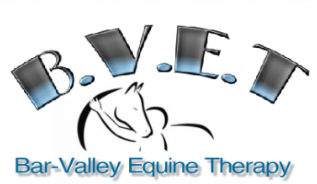Equine Psychology
Most horses tolerate us when riding or handling them while they have underlying issues. Horses are primarily flight animals and regardless of the fact that we have domesticated them, we cannot change their innate survival instinct for self preservation. We can desensitize horses but ultimately the horse will respond to "life threatening" stimuli, regardless if we as humans perceive the situation to be life threatening or not. Due to the horse's innate self preservation instinct they tend to mask issues that would make them seem to be the weakest link in the food chain. It is only when the horse goes lame or shows unwanted behaviour that we usually start looking for possible causes. At this stage the horse has compensated so much to hide the primary cause that we see the result of a secondary “problem” be it intermittent lameness, referred pain or behavioural issues. This is a major contributing factor why sometimes, vets cannot find what is wrong with your horse and after a very fat bill your horse is vetted “sound” and nothing is wrong with your horse, yet very restricted in movement. In saying this, if an injury is a primary cause of lameness the vet is the best option for attending to the cause of lameness.
Some issues linger after a release treatment due to the fact that the horse has compensated for such a long time (muscle memory/habit) that it needs to be “taken through the process” that it can use the limb without any pain, hence the myofascial releases. It is also very possible that a contributing factor is the duration of the restriction, some "habits" may become learnt behaviour.
Limited exercise or overworked horses would be under continuous stress and could lead to physical or mental problems. When a horse is under stress, the glands secrete adrenaline. Horses that are under stress do not perform very well, it is a scientific fact that horses tend to shut down if under stress, thus making it more difficult to teach the horse.
JJ Terblanche BTEC NDipl (Equine Psychology)
Some issues linger after a release treatment due to the fact that the horse has compensated for such a long time (muscle memory/habit) that it needs to be “taken through the process” that it can use the limb without any pain, hence the myofascial releases. It is also very possible that a contributing factor is the duration of the restriction, some "habits" may become learnt behaviour.
Limited exercise or overworked horses would be under continuous stress and could lead to physical or mental problems. When a horse is under stress, the glands secrete adrenaline. Horses that are under stress do not perform very well, it is a scientific fact that horses tend to shut down if under stress, thus making it more difficult to teach the horse.
JJ Terblanche BTEC NDipl (Equine Psychology)
The horse is an elite athlete, and should be given the chance to reach the optimal level of performance.
Animal Muscle Release Therapy helps to achieve and maintain
performance in the equine athlete.
Horses develop back and neck pain and other musculoskeletal injuries
due to the nature of their work, as well as fractures and stress fractures,
nerve injuries, and soft tissue injuries from falls, accidents and over-training.
Animal Muscle Release Therapy helps to achieve and maintain
performance in the equine athlete.
Horses develop back and neck pain and other musculoskeletal injuries
due to the nature of their work, as well as fractures and stress fractures,
nerve injuries, and soft tissue injuries from falls, accidents and over-training.
In order to achieve positive results, it is imperative that we ensure the horse be treated in such a manner that the
Parasympathetic Nervous System is active.
Parasympathetic Nervous System is active.
References
- Domestic animal behaviour for veterinarians and animal science - third edition
- Psychology A2 The complete companion Cardwell, Flannagan
- Andrew McLean PhD (Equine cognition and learning), BSc (Zoology), Dip Ed Winner of the highest Australian Science award, the Eureka Prize for Science
- Dr. Paul McGreevy on Horse behavior http://www.equusite.com/articles/behavior/behaviorDrMcGreevy.shtml
- How horses learn: Dr Debbie Marsden BSc Phd
- The nature of horses: Stephen Budiansky
- Equine Behaviour: Principles and Practice by Daniel S. Mills (Author), Kathryn J. Nankervis (Author)
- The horse's mind: Lucy Rees
- Knowing Your Horse: A Guide to Equine Learning, Training and Behaviour Emma Lethbridge
- Horse Behaviour Explained: Origins, Treatment and Prevention of Problems by Margit H Zeitler-Feicht (Author)
NCBI
- Psychological factors affecting equine performance Sebastian D McBride1 and Daniel S Mills2 Over-reaction as the result of high emotional arousal is detrimental to performance and is heavily influenced by prior training techniques and also the emotional state of the rider.
- Don't fence me in: managing psychological well being for elite performance horses. Henderson AJ1.
- Stress Modulates Instrumental Learning Performances in Horses (Equus caballus) in Interaction with Temperament Mathilde Valenchon,1,2,3,4 Frédéric Lévy,1,2,3,4 Armelle Prunier,5,6 Chantal Moussu,1,2,3,4 Ludovic Calandreau,1,2,3,4and Léa Lansade1,2,3,4,* Johan J. Bolhuis, Editor
